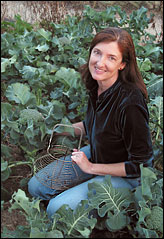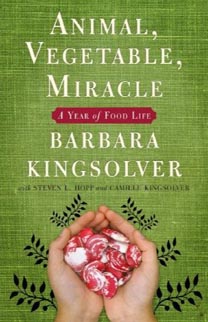Barbara Kingsolver '77 on Two More 'Best of' Lists
December 30, 2009
 December 30, 2009, Greencastle, Ind. — "This is Kingsolver's best novel in years with the tale of a young man coming of age in Revolutionary Mexico and post-World War II United States," opines Chris Skaugset of Barbara Kingsolver's The Lacuna. Skaugset, director of the Longview, Washington Public Library, offers his picks for the best books of 2009 in the Longview Daily News.
December 30, 2009, Greencastle, Ind. — "This is Kingsolver's best novel in years with the tale of a young man coming of age in Revolutionary Mexico and post-World War II United States," opines Chris Skaugset of Barbara Kingsolver's The Lacuna. Skaugset, director of the Longview, Washington Public Library, offers his picks for the best books of 2009 in the Longview Daily News.
He adds, "Sprinkled with a cast of characters including such notables as Leon Trotsky, Diego Rivera and Frida Kahlo, this is a book you don't want to miss."
Read more at the newspaper's Web site.
Kingsolver, a 1977 graduate of DePauw University, "is amazingly good at both fiction and nonfiction," states Sandye Voight in the Telegraph Herald of Dubuque, Iowa. She lists Kingsolver's Animal, Vegetable, Miracle: A Year of Food Life among the best books of the decade.
The Lacuna is also cited on the the San Francisco Chronicle's year-end list of 2009's best books.
Barbara Kingsolver's thirteen books of fiction, poetry, and creative nonfiction include The Bean Trees, The Poisonwood Bible and Animal Dreams. Translated into nineteen languages, her work has won a devoted worldwide readership and many awards, including the National Humanities Medal.
"You need a gift to be able to do what the poet William Blake suggested, to 'see the world in a grain of sand,'" CBS News' Charles Osgood said as he introduced a 1995 segment on Kingsolver, who, he added, "has the necessary gift."
In her commencement address to DePauw's Class of 1994, Kingsolver said, "The best thing about DePauw is that it required me to take courses in poetry and mathematics and biology and history," Kingsolver told the audience. "I was not allowed to be narrow in my interests, and I was rewarded for trying really hard to see the fibers of logic and consequence that connect poetry and biology and history. I believe that's the most precious and useful kind of education that a person can ever have."
